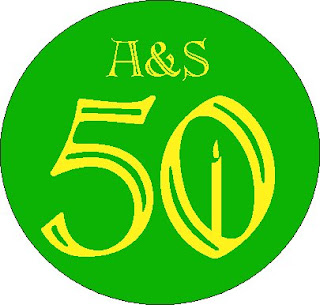To his dear Nephew and well beloved student, master A. of Ledgefield, from Kenelm, philosopher and advisor of the household of the Earl of Stafford, greeting and if it please you to hear of my welfare, I am in good health of body and of heart;
As it sayeth in the Book of Deuteronomy "Teach diligently to your children, and you shall talk to them when you sit in your house, and when you walk by the way, and when you lie down, and when you rise." As I embark on this journey your teaching is much in my thought. That you might continue to benefit from my loving instruction I shall as circumstances permit send you missives that you may grow to be one whose knowledge well befits his station.
As this is the first of letters I shall begin with this: The writing of letters is an essential to the ars dictaminis, and must conform to the standard or you should be thought a dullard lacking the necessary learning, or even the wit to employ a clerk of such skills as you lack.
It is best you should study my copy of Alberic of Monte Cassino’s Breviarium de Dictamine, as it is one of the best known of the formbooks, and its many collected examples surely will form the basis of which others will judge your own letters, though many in the chancery hold the collection of Pietro della Vigna, the ill-fated Chancellor of the Emperor Frederick II, to be superior. While these are letters you would do well to model for they do not flout convention; the best student transcends slavish mimicry.
A letter doth have five parts:
In the salutation, you must pay particular care to the dignity and station of your intended recipient for umbrage must be taken if you fail of the expected courtesies. You must take certain care to always address even your bitterest enemy with expressions of fraternal devotion and love.
Next cometh the exordium, or perhaps the captatio benevolentie. I know that as a youth your Latin is not of the best--I pray thee work to improve it--so I will tell you these are "the introduction " or "catch goodwill." One may quote appropriate scripture, or the philosophers if your recipient be not a churchman. You may seek to catch the goodwill of the reader to the enterprise you undertake with fine words and flattery.
Follows then the narrative in which you set forth explanation or instruction to your reader, as I do here, dearest Nephew.
Before you close the letter you should make the petition, for a request is always expected, but have care that it be the capstone to work already laid down in the exordium and narration.
And finally comes the conclusion, if you are friend or family to the reader you should close as you began, with words of affection, but if you are enemies, here then you may pledge your defiance and not be thought discourteous. You should make mention of where you are dwelling when the letter is written, and the day. One may mark the day in the Roman manner by the kalends, or in the vulgar by the month's day, or as do I, being recusant, by the Saint who is honored upon it.
You may fold, bind, and seal your letter that it be not read save by who you intend. But if you should follow the custom; when the letter does not concern secrets leave it unsealed, taking care to always make your words pleasing to the ear, for most often your letters will be read aloud after dinner, such being the custom in many lands. The entertainment and teaching found in your words are the host's guerdon for your messenger's reception. Be thou attentive to rhyme and cursus, especially the cadences at the ends of clauses. And have a care to see the messenger who carries important letters is well tutored in the thought behind your writing, for oft it is the letter is but to establish his bona fides and it is he who reveals the depths of your intent. Remember the words of Peter the Venerable: "Words that are conveyed to the hearts of others through foreign ears have a way of increasing, changing or losing their true meaning, which is either misunderstood, or neglected, or distorted by the ignorance, carelessness, or assiduity of the messenger."
When you have achieved your years you should write well and often, for letters are the foundation of a strategy of friendships and can secure a reputation of greatness.
Well-beloved Nephew I recommend me heartily to you furthermore informing you that I hope to leave upon my next stage of my journey Monday next. May Jesu for his great mercy save you. Written at London upon Saint Jerome's Day, A.D. 1590. By your devoted uncle Kenelm MacKenna +

